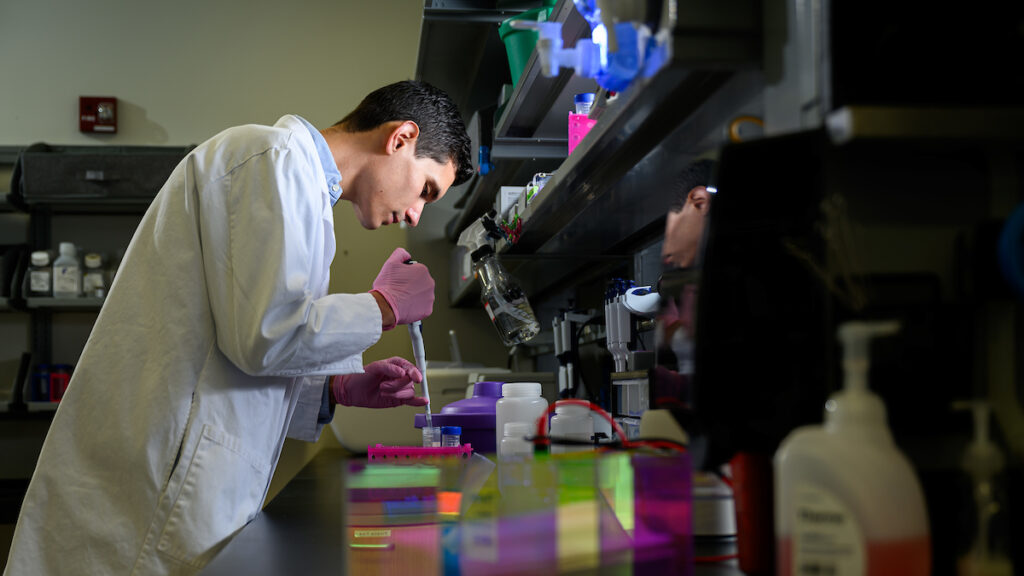Studies Led by NC State Associate Dean Propelling First Drug to Treat Feline Heart Condition to Market
Until now, veterinarians have had no drug to help cats fight hypertrophic cardiomyopathy, but research led by Dr. Joshua Stern has shown that rapamycin can reverse this devastating disease. The novel therapy is pending conditional approval from the FDA.

The first drug found to successfully treat hypertrophic cardiomyopathy in cats has worked so well in clinical trials led by the NC State College of Veterinary Medicine’s associate dean of research that it is expected to receive expanded conditional approval from the U.S. Food and Drug Administration in March while a final pivotal study continues.
HCM, a serious and life-threatening condition, causes the heart muscle to thicken, making it harder for the organ to pump blood. It’s the most common type of heart disease in cats, affecting about 15%, and until now there has been no therapeutic treatment for it.
Research led by veterinary cardiologist Dr. Joshua Stern, associate dean of research and graduate studies at the NC State College of Veterinary Medicine, in collaboration with Ireland-based animal health company TriviumVet has found that a targeted formulation of the drug rapamycin (also known as sirolimus) can reverse symptoms of HCM in controlled studies. Stern’s lab and TriviumVet hope to offer the drug to the veterinary market soon, and the FDA’s conditional approval is the next step in that process.
“Expanded conditional approval allows drugs that are undergoing their final clinical trial assessment and are supported by strong enough data and pilot studies to receive FDA permission to use the drug while the pivotal clinical trial is finishing,” says Dr. Joshua Stern, associate dean for research and graduate studies at NC State. “We’re enrolling cats in one of the largest feline clinical trials ever conducted now.”
Stern says the goal is to enroll 300 client-owned cats in the study, which is running at more than 20 sites across the United States. People interested in enrolling cats diagnosed with hypertrophic cardiomyopathy can find out more information here.
TriviumVet has provided funding for the research and has patented the delayed-release formulation of rapamycin.

Stern says he and his research team have worked hand in hand with TriviumVet to advance understanding of the molecular pathogenesis of HCM to formulate this feline-specific version of rapamycin.
Stern’s lab found that rapamycin could slow down or reverse the thickening of the heart muscle in cats with HCM before any disease side effects even emerge. The drug works by inhibiting the mTOR (mammalian target of rapamycin) pathway — a central regulator of metabolism and physiology.
“This is a game-changer for us in terms of the reality of having something on the market that actually treats the underlying pathology of HCM, rather than just treating symptoms when they eventually develop,” says Stern, who received the Career Achievement in Feline Research Award from the American Veterinary Medical Foundation in 2024.
HCM can progress to serious clinical conditions such as fluid accumulation in the lungs, blood clots occluding flow to important muscles and organs in a process called arterial thromboembolism, congestive heart failure and even rhythm disturbances that can even cause sudden death.
Stern anticipates that the drug will be available for veterinarians to prescribe in time for the American College of Veterinary Internal Medicine conference in June.
“Having a useful therapeutic will completely result in a paradigm shift for veterinarians,” Stern says. “We’ve been playing defense against this disease for many, many years. We’re gonna go on the offensive now.”



